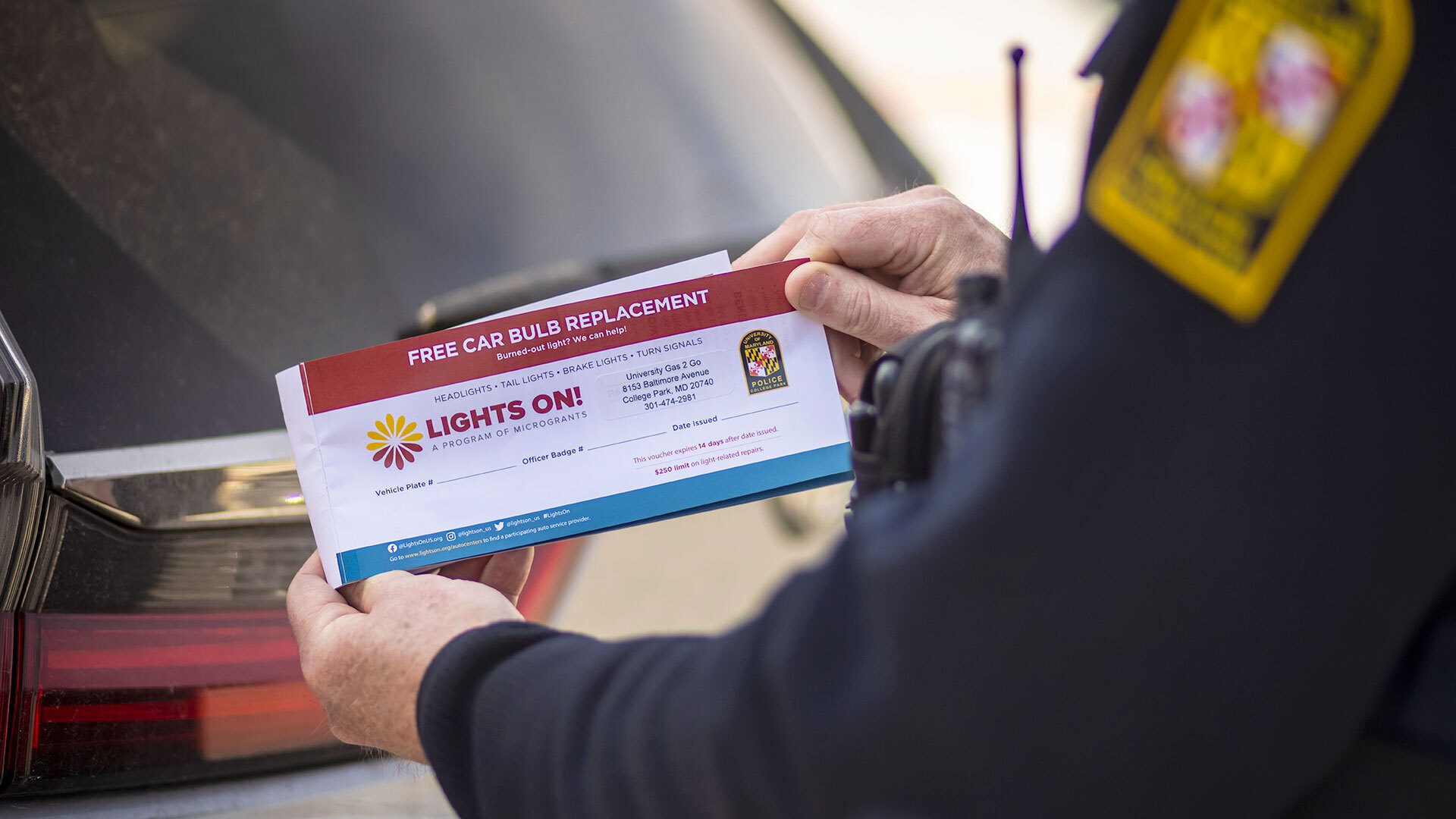- February 22, 2022
- By Shannon Clark M.Jour. ’22
The familiar, flashing blue-and-red glare in your rearview mirror can signal the start of a bad day or night, as police stops for even minor violations like malfunctioning headlights or taillights could mean a costly ticket or repair bill. And for African American community members in particular, any traffic stop can conjure fears of an interaction with law enforcement gone wrong.
The University of Maryland Police Department is taking steps to change both associations through a new partnership with LightsOn!, a Minneapolis-based organization formed to reduce fatal traffic stops after the 2016 killing of Black motorist Philando Castile, who’d been pulled over nearly 50 times for minor violations before being shot by a police officer.
Now, a routine traffic stop can turn into an opportunity for students and community members to fix their cars for free or at a discount. UMPD officers are offering vouchers for up to $250 of light and other car repairs that can be redeemed at University Gas 2 Go located at 8153 Baltimore Ave. Once received, the vouchers are valid for up to 14 days to maintain traffic safety—not to mention motorists’ pocketbook integrity.
“Many members of our community when they get a traffic stop, they have heard things so they are fearful and they are scared,” said UMPD Chief David Mitchell. And while the vast majority of stops proceed without incident, he said, “the (economic) consequence of even a ticket can be devastating to a single head of household.”
The cost of a light repair extends beyond the monetary expenses and an issued ticket. In 2018, The Washington Post reported 7 million people have lost their license due to traffic debt from compounding tickets. Although Maryland has become one of few states to pass legislation ending debt-based driver suspensions, a broken car means a lack of reliable transportation that can prevent people from keeping their source of income.
Mitchell said a key component of the LightsOn! Partnership is a connection with a community-minded local auto repair shop willing to accept vouchers. That connection is Peter Chong, owner of University Gas 2 Go, who for 35 years has worked on cars for college students, College Park residents and the UMPD.
“Lots of students don’t have money to fix their own cars,” said Chong. “We have worked on police cars before, so we heard about this program and (decided to partner). We try to do what we can to help the community.”
Chong estimates voucher recipients save an average of $20-$40 for bulb replacements and light repairs, with the remainder of the vouchers eligible to go toward other potential car repairs, through service approval with LightsOn!
UMPD put up an initial $4,000 to start the program, which was matched by the LightsOn! organization, and is looking for community partners to continue offsetting minor auto repair bills.
Mitchell said he hopes the impact of LightsOn! will be restored and strengthened trust between the police, UMD students and other motorists on Baltimore Avenue.
“If we treat the community with respect, it will hopefully be returned to us,” said Mitchell.
Topics
Campus & CommunityTags
Public Safety